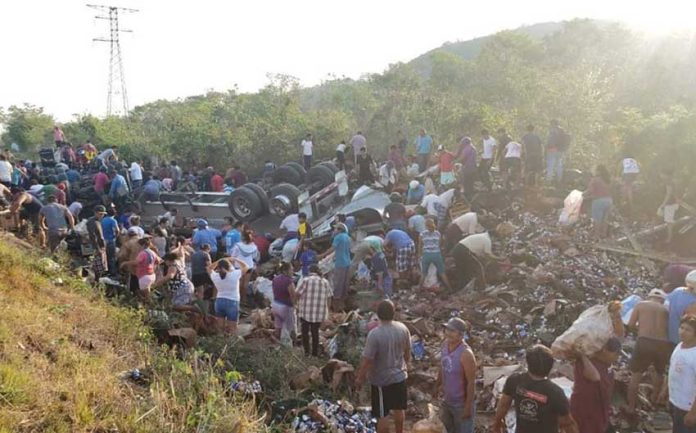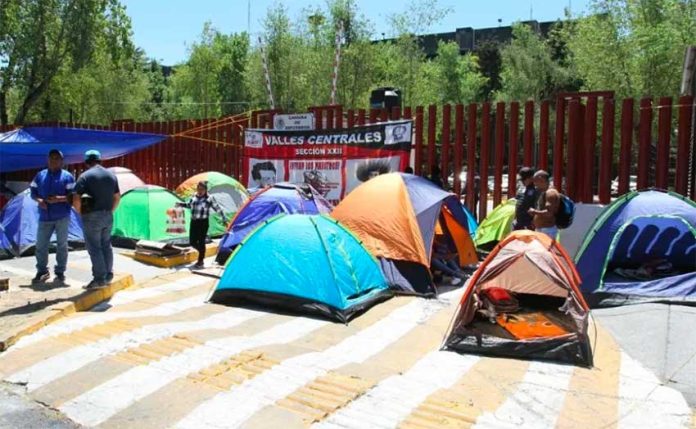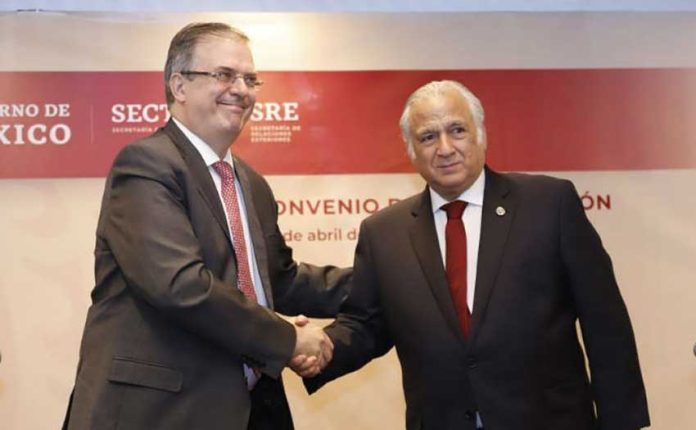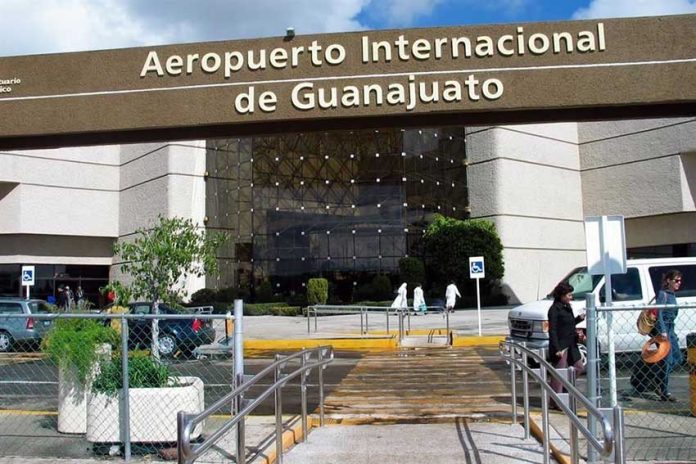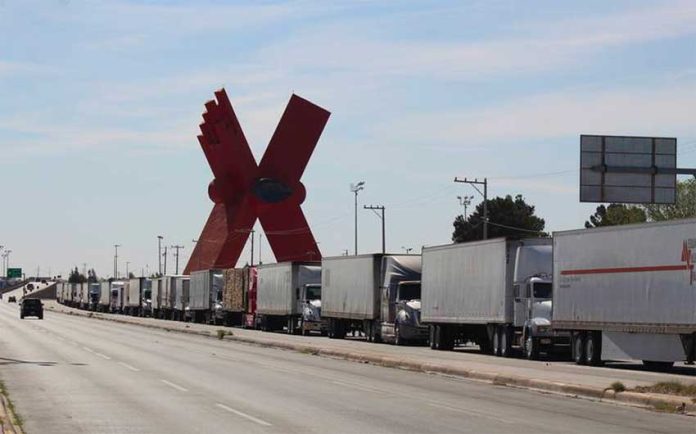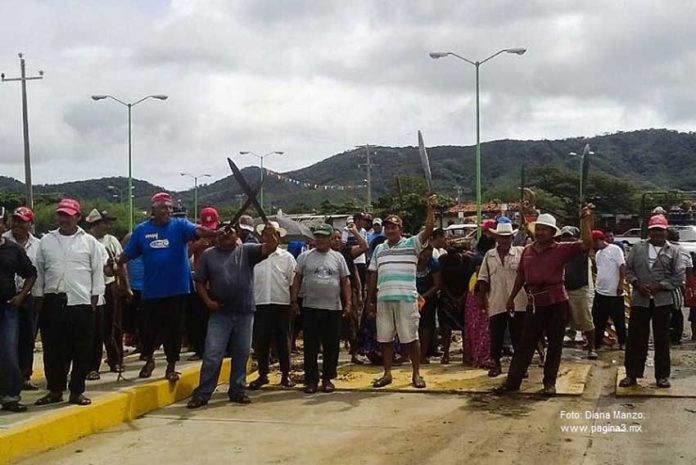Cars and trucks continue to face long wait times at several border crossings between Mexico and the United States including those in Ciudad Juárez, Chihuahua, and Nuevo Laredo, Tamaulipas, where delays of up to 12 and 11 hours respectively have been reported.
Lines of trucks have been as long as 15 kilometers in both cities, according to the National Chamber of Trucking (Canacar), forcing drivers to endure torturously long waits.
“I’ve never experienced anything like this, in all the time I have worked here,” truck driver Juan Sandoval told the news agency Reuters in Ciudad Juárez this morning.
In Tijuana, Baja California, and Reynosa, Tamaulipas, respective wait times of eight and seven hours have been reported at border crossings and more than 1,000 trucks remain stranded in both cities.
The delays have been attributed to a decision by United States Customs and Border Protection to withdraw personnel from border crossings to help deal with an influx of migrants into the U.S. Some lanes at ports of entry have been closed as a result.
However, the newspaper El Economista reported today that the long delays are the result of more exhaustive inspections of trucks and cars and the people traveling in them.
Thousands of mainly Central American migrants have been stranded in northern border cities in recent months and some have tried to cross illegally into the United States to circumvent long waits for the opportunity to seek asylum.
Border agents appear intent on not allowing illegal entries to occur via legal ports of entry.
Over the past week, United States President Donald Trump has repeatedly threatened to close the border completely if Mexico and the U.S. Congress don’t do more to stem illegal immigration. But he backed down on that threat today, instead giving Mexico a “one-year warning” to halt illegal immigration into the U.S.
However, instead of closing the border he will first impose tariffs on cars. If that doesn’t stop the movement of drugs and illegal immigrants, “we close the border.”
Experts have warned of the dire economic consequences if that were to occur, but the current delays are already causing economic losses – and the frustration of travelers – to mount.
In Reynosa, 1,500 trucks are stranded at the different border crossings, Milenio reported.
The three international bridges in the northeastern city have been at maximum capacity for almost a week, increasing wait times for car and truck drivers as well as pedestrians.
Delays at the Pharr-Reynosa International Bridge have increased to as long as eight hours.
Tamaulipas Governor Francisco García Cabeza de Vaca was critical of the decision to transfer border agents to deal with the migrant influx.
“It’s not the way to do it because it directly damages the economy,” he said, pointing out that Texas is Tamaulipas’ largest trade partner.
Jeff Moseley, president of the Texas Association of Business, said that an estimated 14,000 trucks a day cross the border between Laredo and Nuevo Laredo and that the lengthy delays are causing uncertainty.
He also said that people who live on one side of the border and work on the other have been unable to get to their jobs.
“. . . The Texas economy really depends on the ability to get workers and goods to market,” Moseley said.
At the western extreme of Mexico’s 3,145-kilometer-long border with the United States, cars and trucks are also facing long wait times.
Delays at the Otay Mesa port of entry between Tijuana and San Diego, California, have now swollen to two and a half hours for cars and up to seven hours for trucks. However, some of the latter have been stranded much longer.
More than 3,000 trucks have arrived at border crossings in the Tijuana area over the past three days but only about half that number have made it to the other side. Two of 10 commercial lanes at the Otay Mesa crossing have been closed.
Although there have been no reports of waits in Nogales, Sonora, a decision by Customs and Border Protection to close the port of entry to commercial traffic on Sundays will have a negative impact on the produce industry, a spokesman said.
The Fresh Produce Association of the Americas said the closures will limit the availability of items from Sonora, including squash, grapes, watermelons, green beans and tomatoes. “It’s going to harm the companies involved,” said Lance Jungmeyer.
With multi-million-dollar losses already being incurred on a daily basis, truckers have called on the federal government to reach an urgent agreement with United States authorities to speed up the border crossing process.
Mexico sent exports worth more than US $295 billion across northern land borders last year, according to the United States Department of Transport, a figure that equates to US $808.8 million a day.
Canacar president Enrique González said that the current delays are causing “unprecedented” economic damage for both Mexico and the United States.
Some Mexican exporters are considering sending their goods to the United States by air.
Luis Aguirre Lang, president of the National Council of the Maquiladora Industry (Index Nacional), said that manufacturers of auto parts and medical equipment are among companies contemplating the move in order to avoid penalties for late deliveries to clients in the U.S.
President López Obrador, who has been accused of being timid in the face of President Trump’s threats, said yesterday that “the closure of borders is not in the interest of anyone” and pledged to continue to cooperate with the United States to stop large flows of migrants traveling through Mexico to the northern border.
Source: Milenio (sp), El Economista (sp), Reuters (sp), The Washington Post (en), KTAR News (en)

